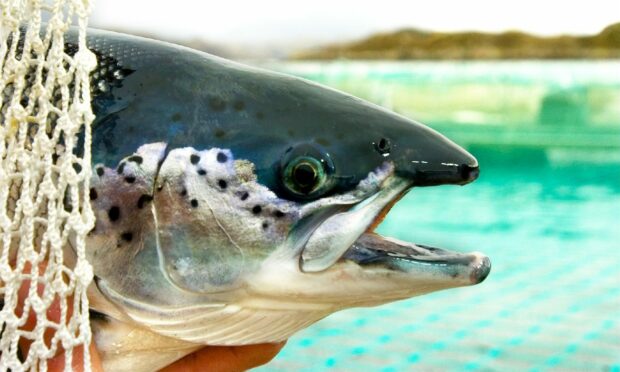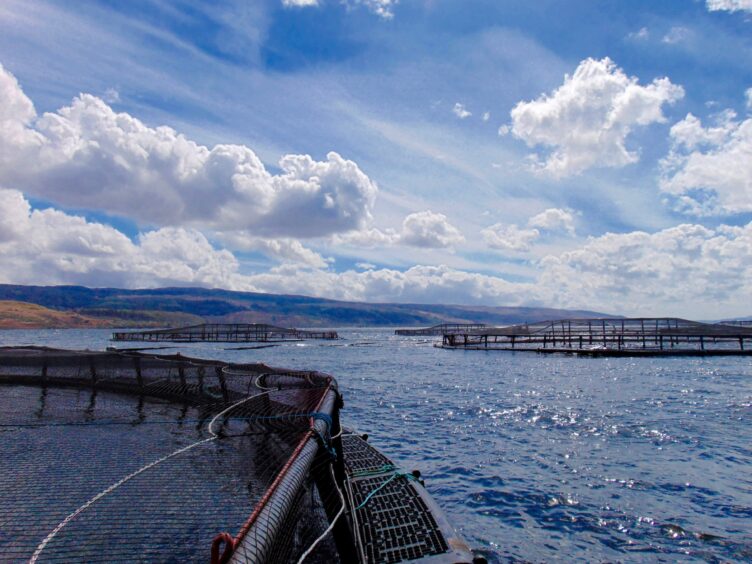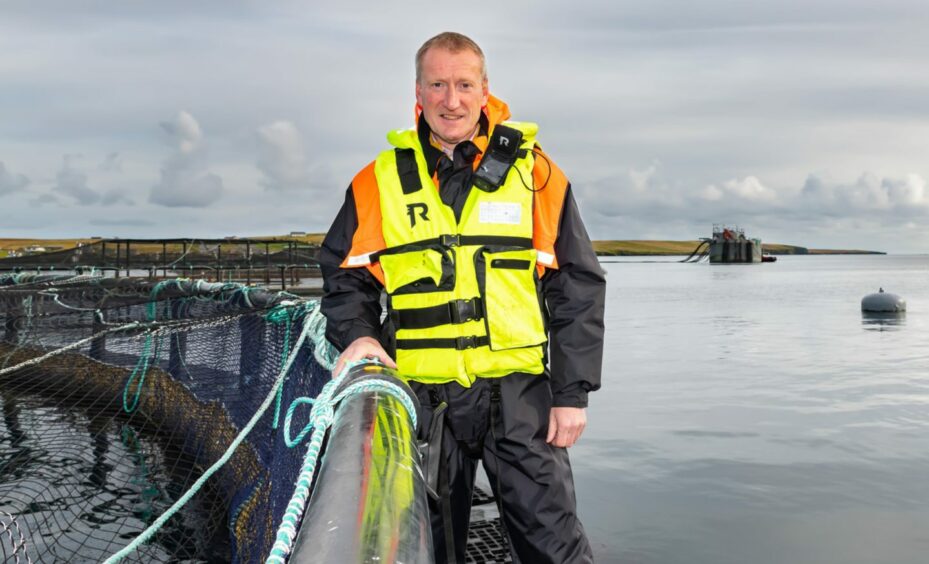Exports of Scottish salmon produced on farms across the Highlands during 2021 were worth £160 million, while UK sales of the fish surged nearly 5%, a new report says.
Salmon Scotland also estimates salmon production directly supported more than 1,000 jobs in the region.
And the industry body’s latest quarterly economic report says sales of chilled Scottish salmon in UK shops soared last year as consumers ate more of the protein-rich fish.
It comes on the back of official figures showing UK salmon exports recovered to near-record figures last year.
The fish was shipped to 52 different markets, with growth achieved in 10 of the top 20.
Farm-raised Scottish salmon is a global success story.”
Tavish Scott, chief executive, Salmon Scotland.
Breaking down these latest annual figures for the first time, Salmon Scotland says 25,700 tonnes were exported from the mainland Highlands in 2021.
This equates to 26% of the Scotland-wide share.
Shetland salmon farms produced 19,900t, worth £130m, while those in Orkney harvested a total of 10,800t, valued at £70m, Salmon Scotland’s new report says.
Salmon farms in the Outer Hebrides produced 18,800t, worth £120m, last year, it adds.
The total value of all Scottish salmon exports grew to £614m, up 36% year-on-year and only marginally below the £618m recorded in 2019, UK Government figures show.
Salmon farming employs an estimated 2,500 people in Scotland.
According to Salmon Scotland, it also supports more than 3,600 suppliers, and 10,000 indirect jobs.
Tavish Scott, the group’s chief executive, said: “Achieving a return of more than £600m on exporting Scottish salmon comes back to the regions, such as the Highlands and Islands, where production happens every day of the year.
“Farm-raised Scottish salmon is a global success story.”
Chilled Scottish salmon retail sales in the UK rose by 4.9 % last year, to £1.1 billion, despite a fall in the overall fish market, the report says.
By volume, UK sales of chilled Scottish salmon were up by 7.8% at 63,300t.
Analysis has also confirmed that Scottish salmon remains the UK’s biggest food export, followed by bread and pastries, chocolate, cereals, and cheese.
Mr Scott, a past leader of the Scottish Liberal Democrats, said: “The rise in consumption here in the UK shows that more consumers recognise the health values and unrivalled quality of Scottish salmon, with year-on-year improvements to the way producers are rearing and feeding their stock which meet the highest welfare standards.”
But the protest goes on
Not everyone with an interest in Scottish salmon farming is happy about the industry’s successes.
Don Staniford, who has campaigned for years to highlight fish welfare issues on salmon farms, has just filed a complaint with the Competition and Markets Authority about “false green claims” in the industry.
The missive is directed at retailers Sainsbury’s and Ocado, and alleges the marketing of organic Scottish salmon is misleading and potentially breaches trading and advertising standards.
Mr Staniford, other protestors and the angling fraternity are also engaged in a long-running battle with the fish farming industry over whether or not sea-lice from salmon production impacts on wild stocks.
Responding to the Salmon Scotland report, Mr Staniford said: “Scottish salmon is far from healthy – it is sourced from disease-ridden feedlots.
“Consumers should avoid Scottish salmon like the plague.”



